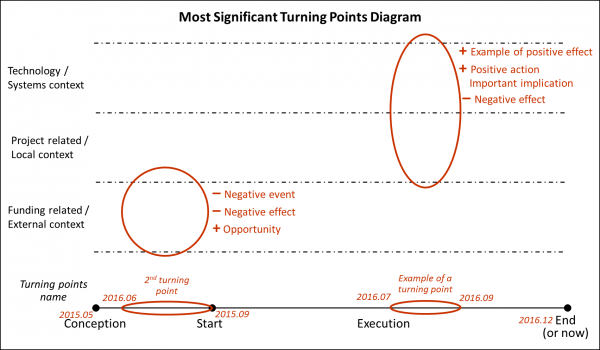If the assumptions and plans you established for your project prove to be wrong... how do you know which are the right things to do?
And then, how do you make sure you do them right?
You often need to learn very quickly about what works and what doesn’t in the context where you operate, and to keep adapting your actions and plans accordingly. But in the context of tech for transparency and accountability (T4T&A) initiatives, this is not an easy task.
This was one of the central themes emerging from our interviews with staff of 24 Kenyan T4T&A organisations and initiatives during the last week of November 2016. The interviews were part of a research project on Doing Digital Development Differently that the Digital and Technology research group at the Institute of Development Studies (IDS) is carrying out with a grant from Making All Voices Count.
‘Adaptive management’ is gaining traction as an approach to improving development interventions by recognising that strategies, project designs and implementation plans need to be altered as new learning emerges or the development context shifts (read the first blog on our research here for a discussion of adaptive management). Our research project aims to explore the drivers and barriers to adaptation, learning and embeddedness in T4T&A initiatives, as experienced by the people who run and participate in these projects. By learning about their perspectives, hopes and frustrations, we aim to enrich and influence the wider discussion on adaptive development, giving more visibility to the voices and needs of those working on the ground.
Learning about moments of adaptation
Our interviewees were mostly programme and project managers, but also included developers, designers, researchers, government officers and representatives of participating communities. The projects our interviewees work on are being implemented in several regions of Kenya, and are focused on different arenas and sectors – from tracking medical supplies in health service delivery, through participatory budgeting and collecting community-based poverty data, to hackathons that aim to fix public service problems. We asked them about their experiences of adaptation and learning in these projects.
Using our ‘most significant turning points’ diagram as a prompt, we asked them to identify critical adaptive moments during the development of their initiatives, starting from the most recent to the oldest. For each turning point, we enquired about the causes of the adaptation, the actors involved, the implications, and the actions they took. Our interviews frequently evolved into conversations that reflected on the role and importance of adaptation for a project’s success.

Some common themes emerged, such as the value of mentoring for enhancing reflection and learning and the difficulties of integrating tech development within extremely tight project timelines. Notably, in almost every project we learned about, there was a need to start adapting and amending the original plan almost from the very first minute. More often than not, this led to a series of successive reactive adaptations, and continuous challenges for achieving the original objectives within project budgets and timelines.
Frequently, there are significant disconnections between the original project design and its execution. These operate at many levels and range from technical challenges, to having the wrong expectations about stakeholders, to theories of change and action that are not adequately rooted in the realities of the context.
Our research and learning workshop on adaptation
During the interviews, many of the respondents expressed a desire for more interaction with other projects, as a way to learn from each other and share their difficulties, experiences and lessons. Once the interviews were over, we held a workshop which offered an opportunity for meaningful contact and collaborative reflection.
The workshop was largely dedicated to the exchange of stories and experiences, building on the knowledge of the participants. The organisers played a facilitating role, aiming to learn from and with the participants, at the same time as complementing and validating the findings from the interviews.
The workshop started with a keynote presentation provided by local social activist Mr Wanjala Wafula, founder of The Coexist Initiative, which has a long history of unconventional work on gender. Mr Wafula shared a number of personal stories that exemplified why learning, adaptation and thinking ‘out of the box’ are essential to achieving real and sustainable changes. He also proposed several strategies to radically increase adaptation in development programming. As well as entertaining the participants, Mr Wafula also energised them to talk about the wicked problems their own projects face. You can watch a video of his presentation (27 mins) here.
When asked about the most important changes that would enable greater capacity for learning and adaptation, participants identified the following:
- an overarching and deep engagement with the people whose needs the project aims to address
- more horizontal and real-time communications among the different actors involved in T4T&A projects, from donors and programme implementers to grantees, stakeholders and community organisations
- a real focus on learning, as well as innovative ways to share what has been learned
- better knowledge and awareness about the contexts the projects operate in, and their associated risks and potential evolution
- greater flexibility, on many levels
- more capacity to bridge the social and technological domains involved in T4T&A initiatives.
A final, positive surprise for us was that, once the workshop officially finished, many of the participants were not willing to leave! They kept talking and exchanging views for a couple of hours. All in all, the experience of getting to know all the projects and their teams – and their commitment to effect positive change despite all challenges – was an inspiring experience, and an excellent way to close this stage of our research.